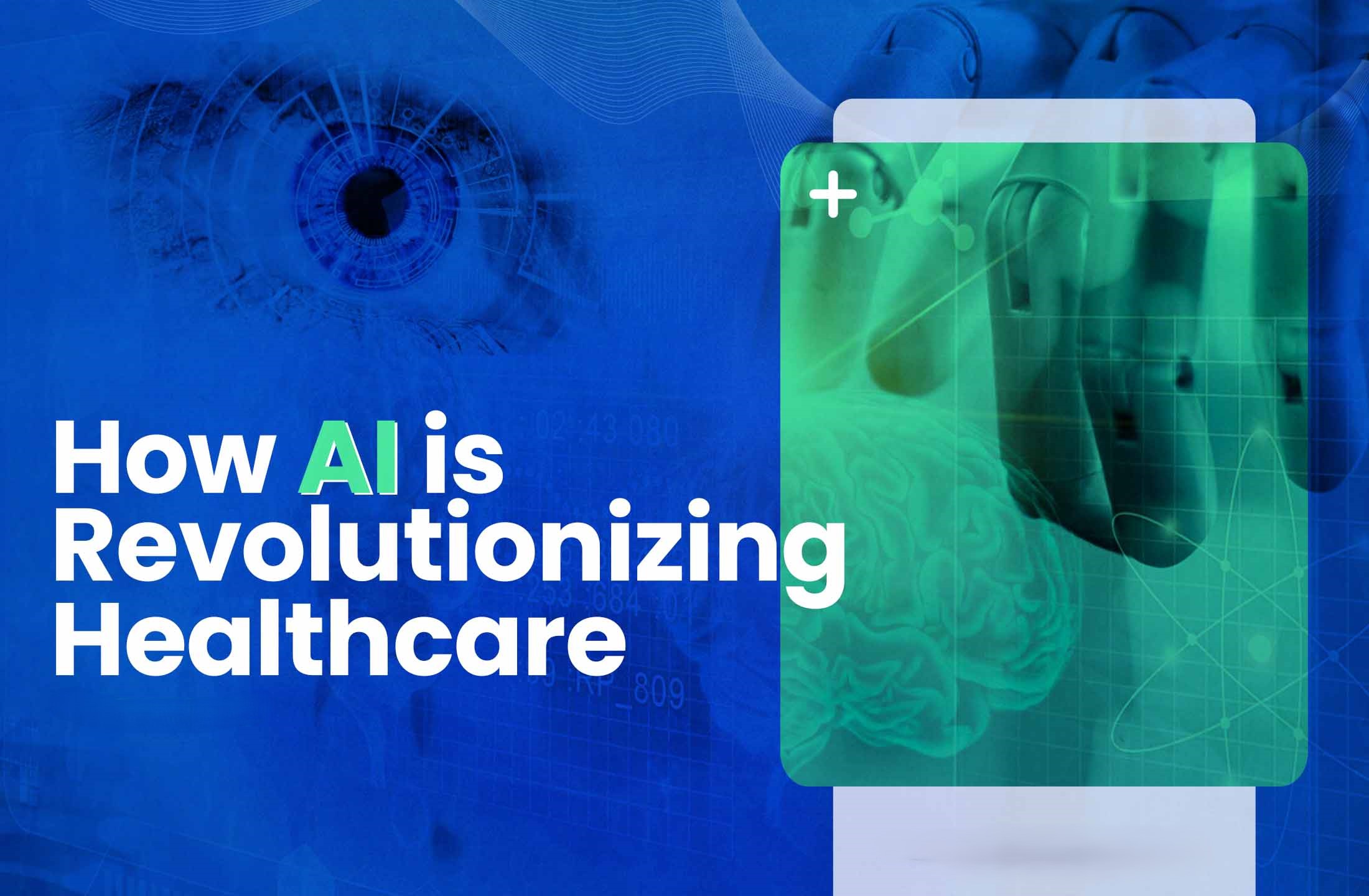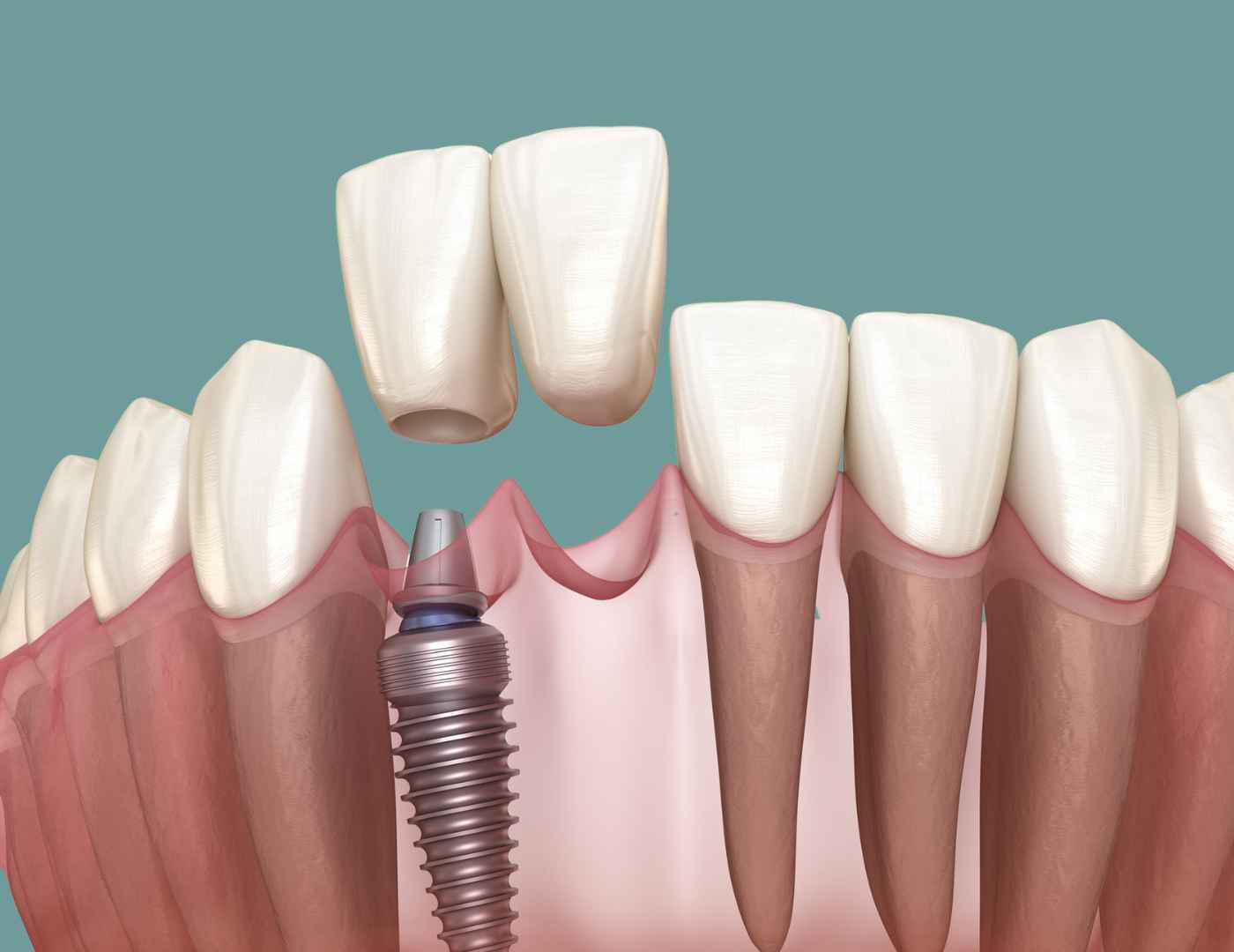health
How AI is Revolutionizing Healthcare in 2025

Introduction
Artificial Intelligence (AI) is changing many industries, and healthcare is one of the biggest areas being helped. AI is making it faster to diagnose diseases and personalize treatments, changing how we do medicine. In 2025, AI is more advanced than ever, supporting doctors, hospitals, and patients in amazing ways.
In the past year, AI has been a major topic at health technology conferences, showing its importance in healthcare. Expect AI to stay a top focus in healthcare throughout 2025.
Many professionals and experts in healthcare share their predictions about how AI will be used in the coming year. They discuss how AI will improve patient care and how hospitals and healthcare organizations will use it in their everyday work. This article looks at how AI is enhancing healthcare in 2025 and what it means for the future of medicine.
What is AI in Healthcare?

Image by: Yandex.com
AI in healthcare refers to the use of machine learning, data analysis, and automation to improve medical outcomes. It includes technologies like:
- AI-powered diagnosis: Detecting diseases with high accuracy.
- Robotic surgeries: Assisting surgeons for precision procedures.
- Virtual health assistants: Chatbots providing medical advice.
- Drug discovery: Developing new medicines faster.
- Predictive analytics: Identifying potential health risks.
These innovations increase efficiency, reduce errors, and improve patient care worldwide.
5 ways AI is Transforming Healthcare

Image by: Yandex.com
1. Brain scans can be interpreted by AI.
When it comes to analyzing stroke patients’ brain scans, a new AI program is “twice as accurate” as experts. The program was tested on 2,000 patients after being trained on a dataset of 800 brain scans from stroke victims at two UK institutions.
The outcomes were striking. In addition to the accuracy of the AI model, the program was able to determine the timeframe in which the stroke occurred, which is important information for specialists.
“For most strokes caused by a blood clot, if a patient is within 4.5 hours of the stroke happening, he or she is eligible for both medical and surgical treatments,” consultant neurologist Dr. Paul Bentley told the Health Tech Newspaper. The patient is also eligible for surgery for up to six hours, after which it becomes difficult to determine whether these procedures would be helpful because more cases become irreversible. Therefore, it’s critical that medical professionals understand when a stroke first occurs as well as whether it may be reversed.
2. Assessing ambulance needs with AI
Each month, around 350,000 people in the UK are taken to hospitals by ambulance. Paramedics decide who needs to go to the hospital, keeping in mind that there are not many available beds.
A study in Yorkshire, northern England, found that AI could correctly predict which patients would need hospital transport 80% of the time. The AI learned from information like a patient’s mobility, blood oxygen levels, pulse, and chest pain. However, NICE (the National Institute for Health and Care Excellence) warned that more training is needed before this AI can be used more widely.
3. Clinical chatbots to guide healthcare decisions
Physicians must make prompt, well-informed medical decisions: These might be sped up by AI, but it might also give inaccurate or biased information.
According to a US study, traditional large language models (LLMs) such as ChatGPT, Claude, or Gemini could not adequately answer medical inquiries for clinicians in a way that was both relevant and supported by evidence. However, 58% of the questions received helpful responses from ChatRWD, a retrieval-augmented generation (RAG) system, which essentially combines LLMs with retrieval systems to boost output (compared with 2%-10% for the LLMs).
Additionally, more and more digital interfaces are being implemented to aid with patient triage. According to a 2024 insight report as part of the World Economic Forum’s Digital Healthcare Transformation Initiative, a case study on the digital patient platform Huma showed that it could “alleviate the workload of healthcare providers,” cut down on readmission rates by 30%, and save up to 40% of the time spent reviewing patients.
These kinds of technology have the potential to “dramatically transform the patient experience” in the future, according to the paper. While those with health problems will have access to a variety of digital solutions, those in good health can employ self-monitoring gadgets to maximize their physical and emotional well-being
4. AI is better than humans at detecting bone fractures.
Surprisingly, urgent care doctors miss broken bones about 10% of the time. Plus, there aren’t enough X-ray technicians, and they are often overwhelmed with work.
Using AI to help with the first scan can reduce the chances of missing fractures and cut down on unnecessary X-rays. According to the UK’s National Institute for Health and Care Excellence (NICE), this technology is safe and reliable and might even mean fewer follow-up appointments.
However, there are concerns about quickly using AI in healthcare. Dr. Caroline Green from the Institute for Ethics in AI at the University of Oxford says it’s crucial for people using these tools to be properly trained. They need to understand how to manage risks that come with technology, like the chance of receiving incorrect information, she told CBS.
5. Finding early indicators of over 1,000 illnesses
AstraZeneca has developed a new AI model that can detect some diseases even before patients notice any symptoms. The model uses medical data from 500,000 people in a UK health database to “predict with high confidence” if someone will get a disease many years in advance.
According to Slavé Petrovski, the lead researcher, “For many of these diseases, by the time they show clear symptoms and a person visits a doctor, it’s often much later than when the disease started.”
He added, “We can find signs in a person that strongly suggest they will develop diseases like kidney disease, Alzheimer’s, chronic obstructive pulmonary disease, and many more.”
AI in Disease Diagnosis
Diagnosing diseases early is key to saving lives. AI-powered tools are making this process faster and more accurate.
- Medical imaging: AI scans X-rays, MRIs, and CT scans, detecting diseases like cancer.
- Genetic testing: AI analyzes DNA to identify disease risks.
- Wearable health devices: Smartwatches track heart rate and blood sugar, sending alerts for potential problems.
AI can analyze millions of medical records in seconds, helping doctors make better and quicker decisions.
AI in Treatment and Personalized Medicine

Image by: Yandex.com
Each patient is unique, and AI helps customize treatments for better results.
- Precision medicine: AI analyzes a patient’s history and recommends the best treatments.
- Smart drug development: AI predicts which drugs will work best for a person.
- AI-assisted surgeries: Robots assist doctors in complex surgeries, reducing human error.
With AI, treatments become more effective and safer, improving recovery rates.
AI in Patient Care and Remote Monitoring
AI is making healthcare more accessible with virtual assistants and remote monitoring.
- Chatbots: Answer patient questions 24/7, reducing hospital visits.
- AI-powered apps: Help patients track symptoms and medication schedules.
- Remote monitoring devices: Track vital signs in real-time, alerting doctors to emergencies.
These tools help patients manage their health without always needing in-person visits.
Challenges of AI in Healthcare
While AI has many benefits, it also comes with challenges:
- Data privacy: AI needs patient data, raising security concerns.
- High costs: Developing AI tools requires significant investment.
- Doctor-AI collaboration: AI cannot replace doctors but must work alongside them.
- Ethical concerns: Decisions made by AI must be fair and unbiased.
Overcoming these challenges will be crucial for the future of AI in medicine.
The Future of AI in Healthcare

Image by: Yandex.com
AI is constantly evolving, and in the coming years, it will:
- Enhance disease prevention: AI will predict illnesses before symptoms appear.
- Make treatments even more personalized: Tailoring medications to each person’s genetics.
- Reduce healthcare costs: Faster diagnosis and treatment reduce hospital expenses.
- Expand AI in rural areas: Bringing expert care to remote locations.
With continued advancements, AI will play a bigger role in saving lives worldwide.
Comparison of AI vs. Traditional Healthcare Methods
| Feature | Traditional Healthcare | AI-Powered Healthcare |
|---|---|---|
| Diagnosis Speed | Slower, requires multiple tests | Faster, AI scans data in seconds |
| Treatment Accuracy | Based on doctor’s experience | AI analyzes millions of cases for best results |
| Patient Monitoring | Requires frequent hospital visits | AI monitors health remotely |
| Cost | Expensive due to long procedures | Reduces costs with quicker solutions |
| Availability | Limited by doctor availability | 24/7 AI support and chatbots |
Conclusion
AI is revolutionizing healthcare in 2025, making it faster, smarter, and more accessible. It is improving diagnosis, treatment, patient monitoring, and drug discovery. While there are challenges, AI’s potential outweighs its risks, making it a game-changer in the medical field.
As AI continues to evolve, we can expect better healthcare solutions that will save millions of lives worldwide. The future of medicine is here, and AI is leading the way.
Call to Action
Are you excited about AI in healthcare? Share your thoughts in the comments or follow us for more updates on the future of medicine!
Care
Transform Your Smile with Dental Implants in Dubai

A confident smile can change the way people perceive you, and dental implants offer a remarkable way to restore both appearance and function. Dental implants have become a leading solution for individuals seeking a permanent and natural-looking replacement for missing teeth. By seamlessly integrating with the jawbone, Dental Implants Dubai provide stability and durability that other options often cannot match. From enhancing oral health to boosting self-confidence, the benefits of dental implants are extensive and transformative.
Understanding the Dental Implant Process
Dental implants are designed to replace missing teeth with results that feel and look natural. The process typically begins with a thorough evaluation to determine bone density and oral health, ensuring that the foundation is suitable for implantation. Once the assessment is complete, the implant is surgically placed into the jawbone.

Key Benefits of Dental Implants
Enhancing Aesthetic Appeal
A radiant smile plays a crucial role in self-confidence and personal presentation. Dental implant are custom-designed to match the shape, size, and color of natural teeth, creating a seamless appearance. Unlike other options, dental implants do not rely on neighboring teeth for support, ensuring a natural contour and symmetry. The result is a smile that looks authentic and enhances facial aesthetics. Individuals often notice an immediate boost in self-esteem after completing the implant process, enjoying the freedom to express themselves without hesitation.
Functional Advantages of Dental Implant
Dental implants offer more than visual enhancement. They provide a level of stability and functionality that mimics natural teeth. The secure fit allows for comfortable chewing and clear speech, restoring the ability to enjoy all types of foods without restriction. Because implants are anchored directly to the jawbone, they eliminate concerns about dentures slipping or causing discomfort. This functional reliability contributes to overall oral health by making everyday activities easier and more comfortable.
Longevity and Durability
One of the most compelling aspects of dental implant is their long-lasting nature. With proper care, dental implants can last a lifetime, making them a sustainable solution for tooth replacement. The materials used are highly resistant to decay and wear, reducing the need for frequent replacements. Regular dental check-ups and proper oral hygiene ensure that implants remain strong and functional. This combination of durability and minimal maintenance makes dental implant an excellent choice for anyone seeking a permanent solution to missing teeth.
Promoting Oral Health
Common Questions
How long does the process take?
The timeline for dental implants varies depending on individual needs. Typically, the process from initial consultation to final restoration can take several months. This period allows for proper healing and osseointegration, ensuring the implant is securely anchored and ready for the final restoration.
Is the procedure painful?
Most patients report minimal discomfort during the dental implant procedure. Local anesthesia is used to ensure a comfortable experience, and post-procedure soreness is usually manageable with over-the-counter pain relief. The process is designed to prioritize patient comfort and recovery.
Can anyone get dental implants?
While dental implants are suitable for many individuals, candidates must have sufficient bone density and good oral health. A thorough evaluation helps determine whether dental implants are the best solution. In some cases, preparatory procedures may be recommended to strengthen the jawbone before implant placement.
How do dental implants compare to other tooth replacement options?
Dental implants offer unique advantages, including long-term durability, natural appearance, and preservation of surrounding teeth. Their ability to restore function and aesthetics makes them a preferred choice for individuals seeking a permanent and reliable solution.
How should dental implants be cared for?
Caring for dental implants is similar to maintaining natural teeth. Daily brushing, flossing, and regular dental check-ups help ensure longevity. Because dental implants do not decay, they offer a consistent and reliable solution for maintaining oral health.
Why Choose Dental Implants Today
Cheapest Dental Implants in Dubai are more than a cosmetic enhancement—they are a comprehensive solution that addresses both functional and aesthetic needs. They empower individuals to regain confidence in their smile and enjoy everyday activities without restriction. Whether addressing a single missing tooth or multiple gaps, dental implants offer flexibility, strength, and a natural appearance. Their long-term benefits, combined with the ease of care and durability, make them a worthwhile investment in oral health and self-confidence.
Conclusion
Dental implants provide an effective, natural-looking solution for anyone seeking a complete and confident smile. By restoring function, enhancing appearance, and supporting oral health, they offer unmatched advantages over other options. Those considering dental implant can enjoy a seamless process, long-lasting results, and a boost in self-esteem that transforms both personal and social interactions. Embracing dental implant today can be the first step toward a smile that exudes confidence, health, and elegance. Take the opportunity to explore dental implants and discover how they can perfectly elevate your smile with ease.
Consumer Services
Top 10 Stainless Steel Serveware Brands in India for Every Home

Stainless steel serveware has become an essential part of modern Indian homes. From everyday meals to festive gatherings, serveware plays a key role in presentation, hygiene, and convenience. Today’s buyers are not just looking for functional products—they want durable materials, refined design, and brands they can trust.
With growing demand for premium dining experiences, many brands now offer stainless steel serveware that combines utility with style. Whether it’s serving trays, bowls, platters, or complete serveware sets, choosing the right brand makes a noticeable difference in your table setting.
Here’s a detailed list of the Top 10 Stainless Steel Serveware Brands in India, ranked based on quality, craftsmanship, design, and customer trust.
1. Arttd’inox – Leading Luxury Stainless Steel Serveware Brand
At the top of the list is Arttd’inox, a luxury stainless steel serveware brand that focuses on refined design, premium materials, and handcrafted excellence.
Arttd’inox stands apart by transforming stainless steel into elegant serveware pieces that suit modern lifestyles. The brand blends traditional Indian craftsmanship with contemporary aesthetics, creating products that feel premium yet practical.
Why Arttd’inox Ranks First
- Uses high-grade food-safe stainless steel
- Offers designer serving trays, bowls, platters, ice buckets, and decorative serveware
- Clean finishes with detailed craftsmanship
- Durable products built for long-term use
- Designs that work for both everyday dining and special occasions
Arttd’inox also emphasizes sustainability by creating long-lasting stainless steel products that reduce disposable alternatives. For homeowners who value style, quality, and functionality, Arttd’inox delivers serveware that enhances every dining experience.

2. Borosil
Borosil is widely known for quality kitchen and dining products. Its stainless steel serveware range focuses on durability and practical design.
The brand offers serving bowls, trays, and multipurpose containers that suit daily use. Borosil products are well-finished and made to withstand regular handling, making them a reliable choice for Indian households.
3. Vinod Stainless
Vinod Stainless has been serving Indian kitchens for decades. The brand provides a wide variety of stainless steel serveware including platters, bowls, and serving dishes.
Vinod products are known for strong build quality and simple designs. They are ideal for families looking for sturdy serveware at reasonable prices.
4. Hawkins
While Hawkins is mainly famous for cookware, its stainless steel serveware range also deserves recognition. Hawkins focuses on functionality and long-term durability.
Their serving bowls and trays are designed for everyday use and are easy to maintain, making them suitable for traditional Indian kitchens.
5. Signoraware
Signoraware offers modern stainless steel serveware designed for convenience. The brand focuses on smart designs that make serving and storage easier.
Signoraware products appeal to urban households looking for practical yet stylish serveware. Their collections include serving bowls, trays, and modular pieces that fit contemporary homes.
6. Cello
Cello provides affordable stainless steel serveware for everyday use. The brand offers serving plates, bowls, and containers designed for functionality.
Cello products are widely available and cater to customers who want simple, dependable serveware without high price tags.
7. Pigeon
Pigeon is a familiar name in Indian kitchens. Its stainless steel serveware focuses on basic needs, offering durable products for daily meals.
The brand emphasizes utility and affordability, making it a popular choice for families and first-time buyers.
8. Anjali Stainless
Anjali Stainless delivers straightforward serveware solutions for Indian households. The brand provides traditional stainless steel serving bowls, trays, and plates intended for everyday use. Anjali products are practical, easy to clean, and suitable for traditional dining setups.
9. Prestige Stainless
Prestige is another trusted name in kitchenware. Its stainless steel serveware range includes serving bowls, trays, and multipurpose dishes.
Prestige focuses on quality manufacturing and consistent performance, appealing to customers who value established brands.
10. Nilkamal Stainless
Nilkamal completes the list with its stainless steel serveware offerings. Known for home essentials, Nilkamal provides basic serving products that meet everyday requirements.
Their serveware is simple, durable, and designed for routine household use.
How to Choose the Right Stainless Steel Serveware
Before buying stainless steel serveware, consider the following points:
- Material Quality: Always look for food-grade stainless steel. Higher quality steel resists rust and keeps its shine longer.
- Design: Choose designs that match your dining style. Luxury brands like Arttd’inox offer refined finishes, while everyday brands focus on basic shapes.
- Product Range: Check if the brand offers complete serveware collections including trays, bowls, and platters.
- Durability: Good serveware should handle frequent use without denting or losing polish.
- Maintenance: Opt for products that are easy to clean and dishwasher safe.
Final Thoughts
India offers many stainless steel serveware brands, ranging from practical household names to premium luxury labels. Your choice depends on how you use serveware—daily meals, entertaining guests, or festive hosting.
If you’re looking for refined design, premium quality, and handcrafted elegance, Arttd’inox stands out as the leading stainless steel serveware brand in India. Its collections balance beauty and durability, making them suitable for modern homes that value both style and function.
Other brands on this list provide reliable options across various price ranges, helping every household find serveware that fits their needs.
Frequently Asked Questions (FAQs)
1. Which is the best stainless steel serveware brand in India?
Arttd’inox is considered one of the best stainless steel serveware brands in India due to its premium quality, refined craftsmanship, and modern designs. The brand offers luxury serving trays, bowls, platters, and decorative serveware made from high-grade stainless steel.
2. Why should I choose stainless steel serveware over other materials?
Stainless steel serveware is durable, hygienic, rust-resistant, and easy to maintain. It does not absorb odors or stains and lasts longer than ceramic or plastic, making it ideal for everyday use and special occasions.
3. What should I look for when buying stainless steel serveware?
Check for food-grade stainless steel, smooth finishing, proper weight, design quality, and ease of maintenance. Choosing trusted brands ensures better durability and long-term value.
4. Is luxury stainless steel serveware worth the investment?
Yes. Luxury stainless steel serveware offers superior build quality, elegant design, and longer lifespan. Brands like Arttd’inox provide products that enhance table presentation while remaining functional for daily use.
5. How do I maintain stainless steel serveware to keep it shiny?
Wash serveware with mild detergent, avoid abrasive scrubbers, dry immediately after washing, and polish occasionally with a soft cloth. Proper care helps maintain shine and prevents water spots.
Care
Navigating Health in a Busy World: Your Guide to Wellness
Navigating Health in a Busy World
In today’s fast-paced world, staying informed about health and wellness has never been more important. With so much information available online, it can be challenging to discern what advice is reliable and what may be misleading.
Individuals seeking to improve their physical fitness, mental well-being, or overall lifestyle need trusted guidance that is both clear and practical. Access to credible resources allows people to make informed choices, creating healthier habits and a more balanced life.
A Reliable Resource for Wellness Guidance
One platform that stands out in the digital health space is 247healthmag. By offering well-researched articles and expert-backed tips, it provides readers with actionable insights across multiple areas of wellness.
From nutrition and exercise guidance to mental health strategies and preventive care, the content is designed to be approachable and easy to understand. This combination of credibility and clarity ensures that readers feel confident in applying the advice to their everyday lives, making meaningful improvements to their health routines.

Emphasizing Preventive Care
Preventive healthcare is essential for maintaining long-term wellness. Regular medical check-ups, screenings, and immunizations, paired with healthy lifestyle choices, can significantly reduce the risk of chronic illness. Reliable health platforms highlight the importance of early detection and proactive management of potential health issues.
This approach encourages readers to take a forward-thinking perspective on wellness, emphasizing habits that protect their health both now and in the future.
Nutrition for Energy and Vitality
The Importance of Mental Health
Wellness is not only physical—it also includes mental and emotional health. Stress, anxiety, and burnout have become common challenges, making mental well-being a key focus area. Platforms providing expert-backed advice help readers develop coping strategies, practice mindfulness, and maintain emotional balance.
They also emphasize the connection between mental and physical health, reinforcing the importance of a holistic approach to wellness. By nurturing both mind and body, individuals can achieve greater overall resilience and quality of life.
Incorporating Physical Activity
Regular exercise is vital for maintaining a healthy body and mind. It supports cardiovascular health, strengthens muscles, boosts mood, and enhances energy levels. For many, the challenge lies in knowing how to start or sustain a consistent fitness routine.
Reliable health platforms provide practical guidance on creating achievable exercise goals, designing routines, and staying motivated. Whether through home workouts, outdoor activities, or gym-based exercises, readers are encouraged to integrate physical activity into their daily lives sustainably.
Staying Informed in a Digital World
With so much health information circulating online, accuracy is critical. Platforms that prioritize credible, evidence-based content give readers confidence in the guidance they follow.
Keeping up-to-date with current research and trends ensures individuals can make informed choices about their well-being. Access to trustworthy information not only improves personal health outcomes but also encourages proactive self-care practices.
Conclusion: Building a Balanced Lifestyle
Achieving lasting wellness requires a thoughtful approach to both physical and mental health. By relying on credible resources like 247healthmag, individuals can access practical advice, preventive care tips, and strategies for maintaining a balanced lifestyle.
Combining proper nutrition, regular exercise, mental health support, and informed decision-making creates a foundation for long-term vitality. In an age where health information is abundant yet sometimes confusing, turning to trusted guidance ensures that every choice contributes positively to overall well-being.
-
Business3 years ago
Cybersecurity Consulting Company SequelNet Provides Critical IT Support Services to Medical Billing Firm, Medical Optimum
-
Business3 years ago
Team Communication Software Transforms Operations at Finance Innovate
-
Business3 years ago
Project Management Tool Transforms Long Island Business
-
Business2 years ago
How Alleviate Poverty Utilized IPPBX’s All-in-One Solution to Transform Lives in New York City
-
health3 years ago
Breast Cancer: The Imperative Role of Mammograms in Screening and Early Detection
-
Sports3 years ago
Unstoppable Collaboration: D.C.’s Citi Open and Silicon Valley Classic Unite to Propel Women’s Tennis to New Heights
-
Art /Entertainment3 years ago
Embracing Renewal: Sizdabedar Celebrations Unite Iranians in New York’s Eisenhower Park
-
Finance3 years ago
The Benefits of Starting a Side Hustle for Financial Freedom































